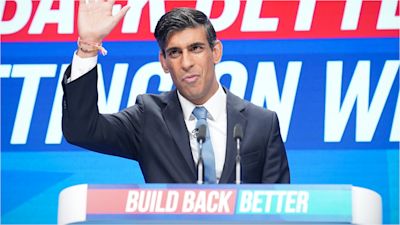Universal Credit payments are 'inadequate' and system is 'complicated to navigate'

Universal Credit payments have been branded "inadequate" and the whole system "complicated to navigate".
The comments come from a new report which has found the end to the £20 uplift will have a significant impact upon claimants.
Analysis by academics at the universities of Bath and Oxford suggests the way the uplift was experienced reveals deeper, structural issues with Universal Credit – creating complexity and confusion for claimants.
The temporary increase in the welfare payment was stopped at the beginning of October and has proved controversial, with campaigners like footballer Marcus Rashford against the move.
Earlier this month ITV News spoke to Tony Bridgwood, a single father, who outlined what the end of the uplift means for him
The report found that there was poor communication from the government to claimants, who were not informed about the increase or about the intention to make it temporary, until it was ending.
And some individuals said they did not receive the full amount of the uplift in their payment.
Fran Bennett, from the University of Oxford, said: “Our findings show that the uplift was welcome, and that claimants did benefit.
“It was an essential support, especially for those relying on Universal Credit the most.
“But these findings raise questions about how Universal Credit is designed and operates, specifically the complex and confusing way in which the monthly payment is calculated.
“For many individuals and families, Universal Credit is proving not just inadequate in terms of its level but also complicated to navigate.”
What was the Universal Credit uplift?
In April 2020, the starting point for the Universal Credit calculation – the standard allowance – was increased by the equivalent of £20 per week, to help individuals and families through the Covid-19 pandemic.
Initially paid for a year, this was extended for another six months – but was withdrawn in October.
Drawing on interviews with 63 Universal Credit claimants, the research team found that many individuals, especially those in work, said they did not receive the full value of the £20 extra per week.
This was in part because Universal Credit is means tested on a monthly basis against earnings, with payments often varying each month in a complex relationship with changing income and needs, making it hard for working claimants in particular to know how much they are due.
In addition, nearly half of all claimants have deductions at source from their Universal Credit for advance loans, overpayments, and arrears.
When the standard allowance was increased, these deductions were increased as well, meaning many claimants did not get the full benefit of the uplift.
And others did not get all or any of the uplift because their Universal Credit was restricted by the benefit cap.
For couples on Universal Credit – the focus of the research – the uplift was also worth proportionately less than for single claimants, because it was flat rate.
For families, this also gave little compensation for the increased costs of having children at home in the pandemic.
A Department for Work and Pensions spokesperson said: “Universal Credit works. It has delivered during the pandemic, providing a vital safety net for six million people, and it will continue to deliver in the months and years ahead.
“We were always clear that the uplift to Universal Credit was temporary. It was designed to help claimants through the economic shock and financial disruption of the toughest stages of the pandemic, and it has done so.”